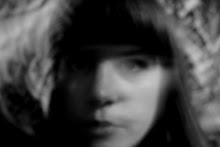
For Literature class we've been working on George Orwell's 'Nineteen Eighty-Four' for this period, reading and discussing it as well as reading articles/essays on the book. Last week I had to do a presentation with 2 other people about the article 'The Invisible Sources of Nineteen Eighty-Four' written by Jonathan Rose. I decided to completely leave the article behind me for my part of the presentation, and instead compare & contrast 'Nineteen Eighty-Four' to 'Brave New World' by Aldous Huxley (ok, not entirely unrelated to the article, as 'Brave New World' gets a minute reference on page 106), another prominent book when it comes to the dystopian novel genre. For the listing of differences I used bits from the following excerpt (the foreword to 'Amusing Ourselves to Death' by Neil Postman, which I found during my preparation/research):
"We were keeping our eye on 1984. When the year came and the prophecy didn't, thoughtful Americans sang softly in praise of themselves. The roots of liberal democracy had held. Wherever else the terror had happened, we, at least, had not been visited by Orwellian nightmares.
But we had forgotten that alongside Orwell's dark vision, there was another - slightly older, slightly less well known, equally chilling: Aldous Huxley's Brave New World. Contrary to common belief even among the educated, Huxley and Orwell did not prophesy the same thing. Orwell warns that we will be overcome by an externally imposed oppression. But in Huxley's vision, no Big Brother is required to deprive people of their autonomy, maturity and history. As he saw it, people will come to love their oppression, to adore the technologies that undo their capacities to think.
What Orwell feared were those who would ban books. What Huxley feared was that there would be no reason to ban a book, for there would be no one who wanted to read one. Orwell feared those who would deprive us of information. Huxley feared those who would give us so much that we would be reduced to passivity and egoism. Orwell feared that the truth would be concealed from us. Huxley feared the truth would be drowned in a sea of irrelevance. Orwell feared we would become a captive culture. Huxley feared we would become a trivial culture, preoccupied with some equivalent of the feelies, the orgy porgy, and the centrifugal bumblepuppy. As Huxley remarked in Brave New World Revisited, the civil libertarians and rationalists who are ever on the alert to oppose tyranny "failed to take into account man's almost infinite appetite for distractions". In 1984, Huxley added, people are controlled by inflicting pain. In Brave New World, they are controlled by inflicting pleasure. In short, Orwell feared that what we hate will ruin us. Huxley feared that what we love will ruin us.
This book is about the possibility that Huxley, not Orwell, was right."
In additon to that, I also found this foreword illustrated into a series of cartoons, which I thought was rather brilliant. It was a pity I was unable to show my fellow students the cartoons, as my part of the presentation would've become way too long. Still, I felt I didn't want to leave it untouched and I decided to post some of it on here:



Click here to view the cartoon as a whole. Credits to Stuart McMillen for the illustrations.


No comments:
Post a Comment